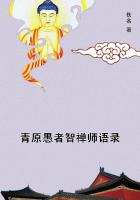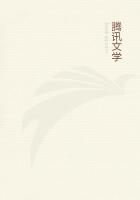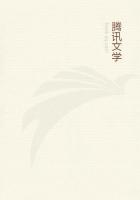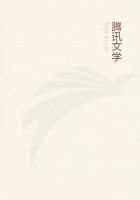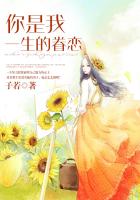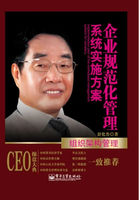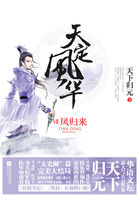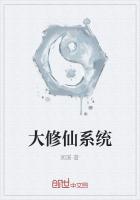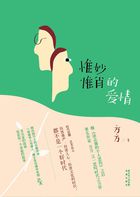"I am tired of this eternal cackle about books," said Jephson;"these columns of criticism to every line of writing; these endless books about books; these shrill praises and shrill denunciations;this silly worship of novelist Tom; this silly hate of poet Dick;this silly squabbling over playwright Harry. There is no soberness, no sense in it all. One would think, to listen to the High Priests of Culture, that man was made for literature, not literature for man. Thought existed before the Printing Press; and the men who wrote the best hundred books never read them. Books have their place in the world, but they are not its purpose. They are things side by side with beef and mutton, the scent of the sea, the touch of a hand, the memory of a hope, and all the other items in the sum-total of our three-score years and ten. Yet we speak of them as though they were the voice of Life instead of merely its faint echo.
Tales are delightful AS tales--sweet as primroses after the long winter, restful as the cawing of rooks at sunset. But we do not write 'tales' now; we prepare 'human documents' and dissect souls."He broke off abruptly in the midst of his tirade. "Do you know what these 'psychological studies,' that are so fashionable just now, always make me think of?" he said. "One monkey examining another monkey for fleas.
"And what, after all, does our dissecting pen lay bare?" he continued. "Human nature? or merely some more or less unsavoury undergarment, disguising and disfiguring human nature? There is a story told of an elderly tramp, who, overtaken by misfortune, was compelled to retire for a while to the seclusion of Portland. His hosts, desiring to see as much as possible of their guest during his limited stay with them, proceeded to bath him. They bathed him twice a day for a week, each time learning more of him; until at last they reached a flannel shirt. And with that they had to be content, soap and water proving powerless to go further.
"That tramp appears to me symbolical of mankind. Human Nature has worn its conventions for so long that its habit has grown on to it.
In this nineteenth century it is impossible to say where the clothes of custom end and the natural man begins. Our virtues are taught to us as a branch of 'Deportment'; our vices are the recognised vices of our reign and set. Our religion hangs ready-made beside our cradle to be buttoned upon us by loving hands. Our tastes we acquire, with difficulty; our sentiments we learn by rote. At cost of infinite suffering, we study to love whiskey and cigars, high art and classical music. In one age we admire Byron and drink sweet champagne: twenty years later it is more fashionable to prefer Shelley, and we like our champagne dry. At school we are told that Shakespeare is a great poet, and that the Venus di Medici is a fine piece of sculpture; and so for the rest of our lives we go about saying what a great poet we think Shakespeare, and that there is no piece of sculpture, in our opinion, so fine as the Venus di Medici.
If we are Frenchmen we adore our mother; if Englishmen we love dogs and virtue. We grieve for the death of a near relative twelve months; but for a second cousin we sorrow only three. The good man has his regulation excellencies to strive after, his regulation sins to repent of. I knew a good man who was quite troubled because he was not proud, and could not, therefore, with any reasonableness, pray for humility. In society one must needs be cynical and mildly wicked: in Bohemia, orthodoxly unorthodox. I remember my mother expostulating with a friend, an actress, who had left a devoted husband and eloped with a disagreeable, ugly, little low comedian (Iam speaking of long, long ago).
"'You must be mad,' said my mother; 'what on earth induced you to take such a step?'
"'My dear Emma,' replied the lady; 'what else was there for me? You know I can't act. I had to do SOMETHING to show I was 'an artiste!'
"We are dressed-up marionettes. Our voice is the voice of the unseen showman, Convention; our very movements of passion and pain are but in answer to his jerk. A man resembles one of those gigantic bundles that one sees in nursemaids' arms. It is very bulky and very long; it looks a mass of delicate lace and rich fur and fine woven stuffs; and somewhere, hidden out of sight among the finery, there is a tiny red bit of bewildered humanity, with no voice but a foolish cry.
"There is but one story," he went on, after a long pause, uttering his own thoughts aloud rather than speaking to me. "We sit at our desks and think and think, and write and write, but the story is ever the same. Men told it and men listened to it many years ago;we are telling it to one another to-day; we shall be telling it to one another a thousand years hence; and the story is: 'Once upon a time there lived a man, and a woman who loved him.' The little critic cries that it is not new, and asks for something fresh, thinking--as children do--that there are strange things in the world."At that point my notes end, and there is nothing in the book beyond.
Whether any of us thought any more of the novel, whether we ever met again to discuss it, whether it were ever begun, whether it were ever abandoned--I cannot say. There is a fairy story that I read many, many years ago that has never ceased to haunt me. It told how a little boy once climbed a rainbow. And at the end of the rainbow, just behind the clouds, he found a wondrous city. Its houses were of gold, and its streets were paved with silver, and the light that shone upon it was as the light that lies upon the sleeping world at dawn. In this city there were palaces so beautiful that merely to look upon them satisfied all desires; temples so perfect that they who once knelt therein were cleansed of sin. And all the men who dwelt in this wondrous city were great and good, and the women fairer than the women of a young man's dreams. And the name of the city was, "The city of the things men meant to do."
End

